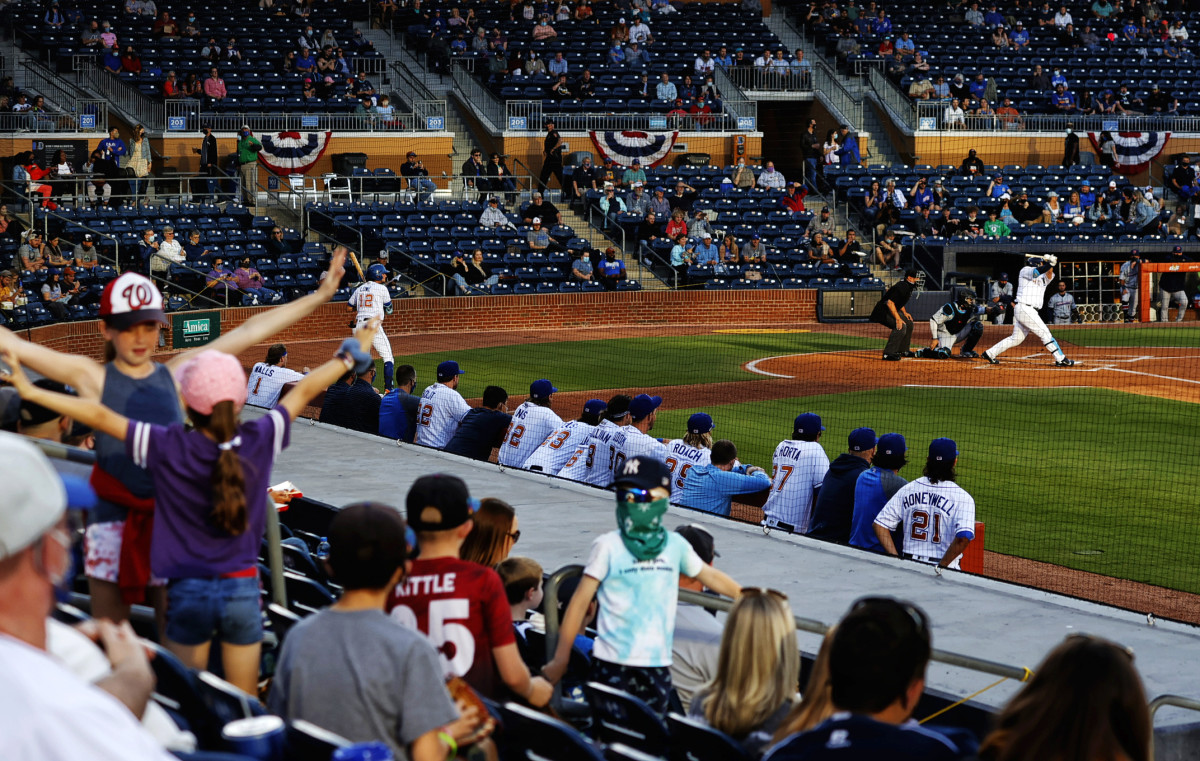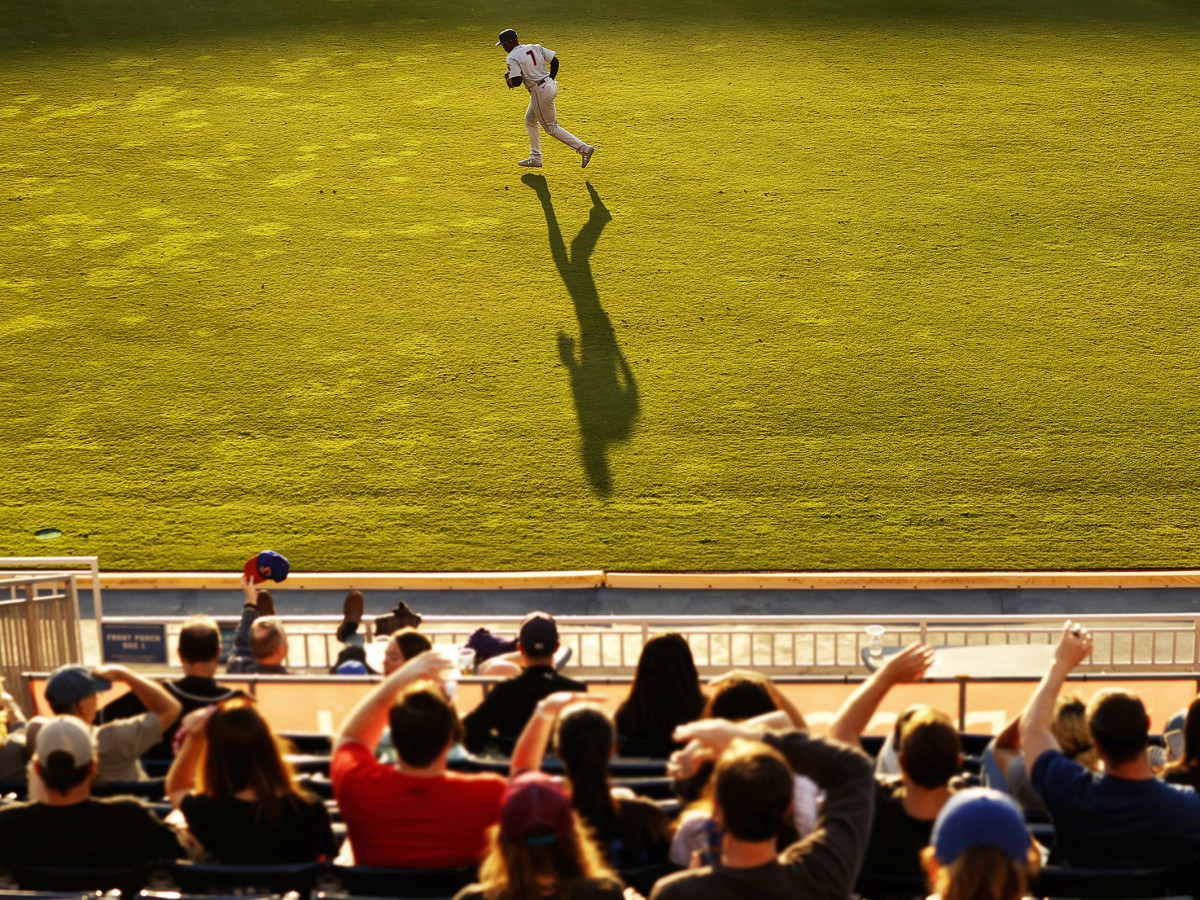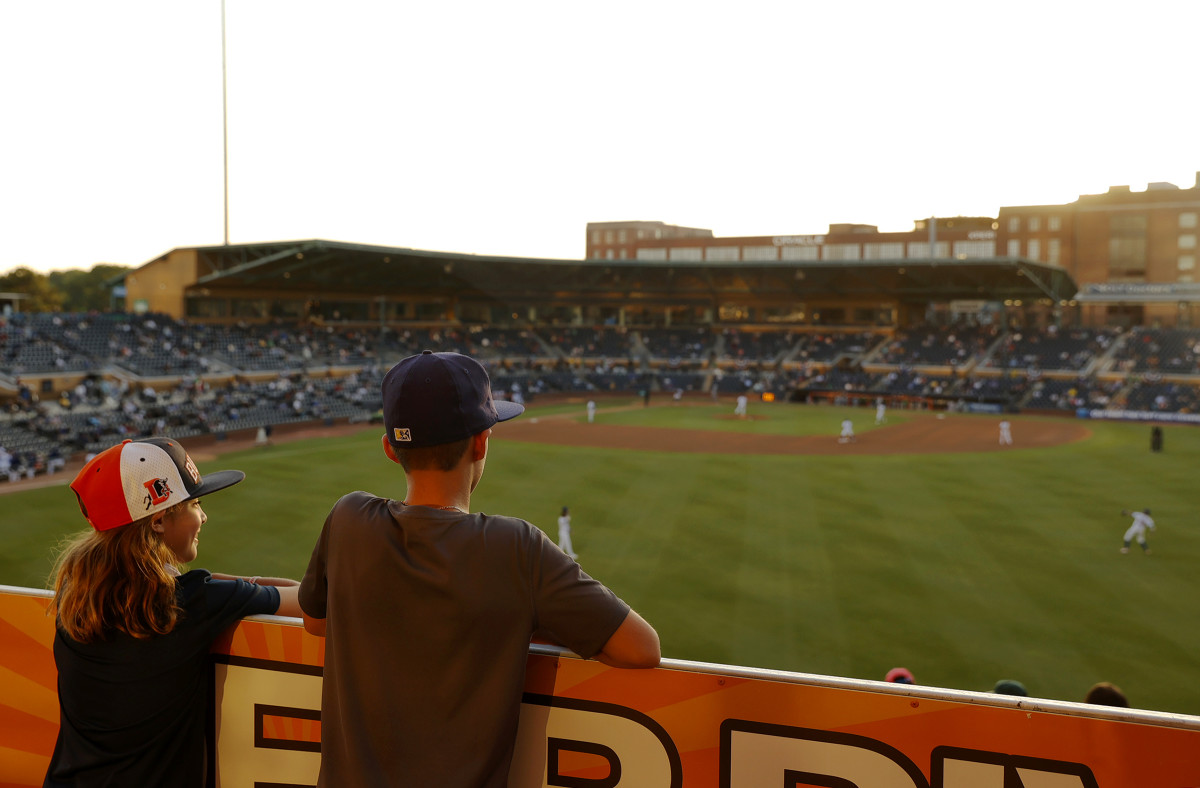'It’s Just Good to Be Back Home': Inside Minor League Baseball's Long-Awaited Return

DURHAM, N.C. — In the last 607 days, Durham Bulls Athletic Park has alternately served as a place to buy chicken, a place to watch a movie and a place to complete office work. It has sat unsettlingly empty, a mark of an agonizing pandemic year, and it has found new ways to become partially full. It just has not served in the one role for which it was built—a place to watch a ball game.
That streak came to an end on Tuesday, when the Triple A Bulls hosted their first home game since September 2019, after the pandemic canceled last season and delayed the start of this one. (They lost, 4–3, to the Jacksonville Jumbo Shrimp.) They’re one of 120 teams whose return to the field this month has marked the close of a particularly trying and topsy-turvy stretch in Minor League Baseball.
“It’s just good to be back home,” Bulls manager Brady Williams said. “There’s no better feeling than walking out and seeing fans out there. … That’s what you miss most as baseball players.”
It’s been roughly 10 months since most of North America’s major professional leagues returned to play after a pandemic hiatus. But minor league teams—dependent on ticket sales rather than television contracts—faced a different situation. As Major League Baseball returned last July, the minors sat on a canceled season. When MLB began its 2021 season in March, minor leaguers were left waiting just a little longer: Although Triple A had originally been scheduled to start in early April, its opening day was pushed back to May, joining Double A and Class A.

This lengthy time away forced all sorts of adjustments. To start, there are the practicalities recovering from a lost season. While some minor league players had the opportunity to practice last summer at the alternate training sites of major league teams, many did not, trying their best to work out on their own without access to game situations. And then there’s the fact that the structure of the minor leagues has changed significantly over the last year: While teams were dealing with the financial hardships triggered by the pandemic, they were also staring down the expiration of the agreement that governs the relationship between MLB and MiLB. A new agreement was not reached, functionally putting the minors under control of MLB. This brought turmoil and team contraction, meaning that as the minors sat dormant for the year, they also became the subject of an increasingly complicated discussion about labor, money and the future of the sport as a whole.
Which is all to say that the last year has been a stressful time to run a minor league team—even for a Triple A club in a more stable position, like the Bulls, who were not threatened with contraction or with a change in affiliation.
“It just feels so great to be back,” Bulls vice president of baseball operations Mike Birling said shortly before first pitch on Tuesday. “We have a certain place in the community. ... I just think that’s important.”
The team has a long list of things that it tried during the pandemic—both to keep its head above water financially and to cultivate that place in the community. It transformed its suites into “offices” that people could rent for a change of scenery as they worked from home. It hosted socially distanced movie nights and allowed a local fencing club to practice on the open air of its concourses. In late January, it held a bulk sale of fresh chicken from a local farm; people would buy online and pick up their order at the ballpark. Advertisements that otherwise would have featured their mascot, Wool E. Bull, encouraging you to come to a game instead had him encouraging you to “wash your horns.” (The team sold T-shirts with the phrase and raised $20,000 for the charity organization United Way.) It calculated just how many times you could have watched Bull Durham in the 607 days between Durham Bulls home games: 8,093 viewings, with a few minutes to spare.

“That’s what I love about Minor League Baseball,” said Birling, now in his 21st official season with the Bulls, after one season that wasn’t. “That’s why I’ve been in it my whole working life. There’s something about minor league organizations—they’re gritty, they’re creative. And when you have the prospect of losing 90% of your revenue, you have to think differently.”
But there was no replacement for that place filled in the community by Durham Bulls baseball games. To be back at the park on Tuesday was a salve for fans like Ed Lowdermilk, who has been a Bulls season-ticket holder since the park opened in 1995. His usual seats right behind the dugout are unavailable for now due to social distancing precautions. But to have any seat at all for a ball game felt like “relief,” he said.
The fan experience on Tuesday looked somewhat differently, as it has everywhere, with limited capacity and mask requirements. And, for some, it came with a new perspective.
“You might take it a little for granted before,” Bulls fan Mike Carr said of the game day experience. “And now you’re not going to do that.”
More MLB Coverage:
• Verducci: Inside the Devastating Gig Economy of Relief Pitching
• Apstein: Why the Giants Could Play Spoiler For the NL's Best
• Baccellieri: What Did Kyle Hendricks Do to Deserve This?
• Martell: How Posey, Molina Are Hitting Better Than Ever in '21
